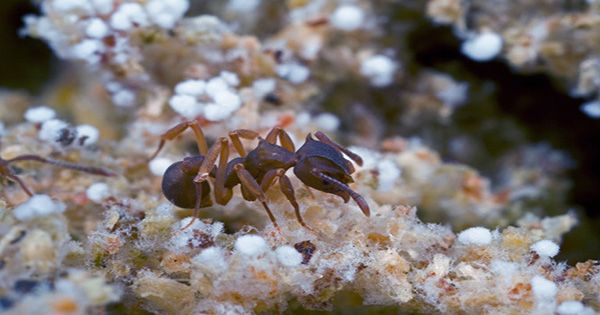There are a few more great tragedies for the ant colony than the death of the queen. For some species, a dead queen means the game is over in the whole colony. Other species, such as the Indian Jumping Ants (Harpegnathos saltator), lack energy because of which some invading ants rise to power in aggressive conflicts.
The winner will earn the promotion to be “royalty”, but it will come at a deadly cost: close to one-fifth of their brains. Scientists at the New York University School of Medicine and Arizona State University recently described the unusual ability of Indian jumping ants to reduce brain size if they held the reins of power to become a reproductive worker known as a gamergate (yes, not a gamergate), which is effectively temporary.
As published in the Proceedings of the Royal Society B: Journal of Biological Sciences, gamergates showed a 19 percent reduction in brain volume compared to foragers, as well as other obviously significant changes in their ovaries, behavior, and toxin production.
The daily life of a shepherd can be wisely taxed (for an ant, it is), involving relatively complex tasks such as navigating the nest and its surroundings and retrieving live prey items. By comparison, gamergate do not need to perform many tasks that require higher cognitive processing – but they need to conserve as much energy as possible for the purpose of reproduction. Perhaps most intriguingly, the researchers noticed that the ants were able to return to their former spirits and re-emerge in their brains within eight weeks.
The researchers suspect that this is the first insect known for both increasing and decreasing the size of their brains. For example, the authors of the paper note that the size of the bee’s brain increases when nurses move to forgers, but their brains do not shrink after the forgers return to the nurses. It thought that this flexibility of Indian jumping ants could found because they live in relatively small colonies, usually not more than 100 people. In this comfortable setting, each worker presents more resources that are valuable throughout the colony, so it pays as highly flexible and non-costly.
On the other hand, honeybees can live in a colony of 50,000, which means new workers can easily replace foragers. Although the idea of shrinking and redistributing the brain may seem alien-like, it is something that has documented in the spinal cord many times before. Gamble’s white-crowned sparrow is a species of songbird found in North America whose neurons will die then seasons will reconsider. During each mating season, when birds will sing songs to wow mates, they will enrich with a flurry of new neurons, especially in the “song center” of their brain. In winter, many of these neurons died and will not replace until the following spring if the cycle continues.
















